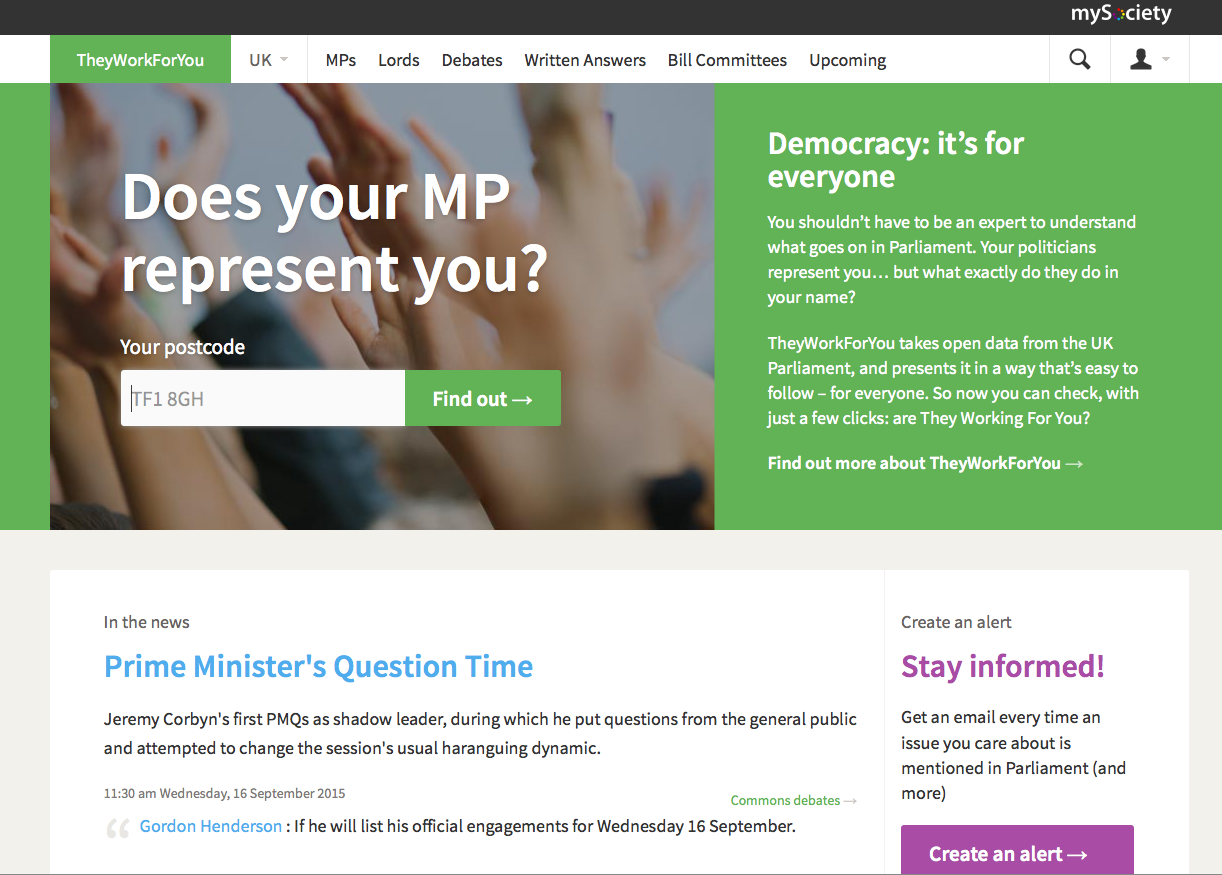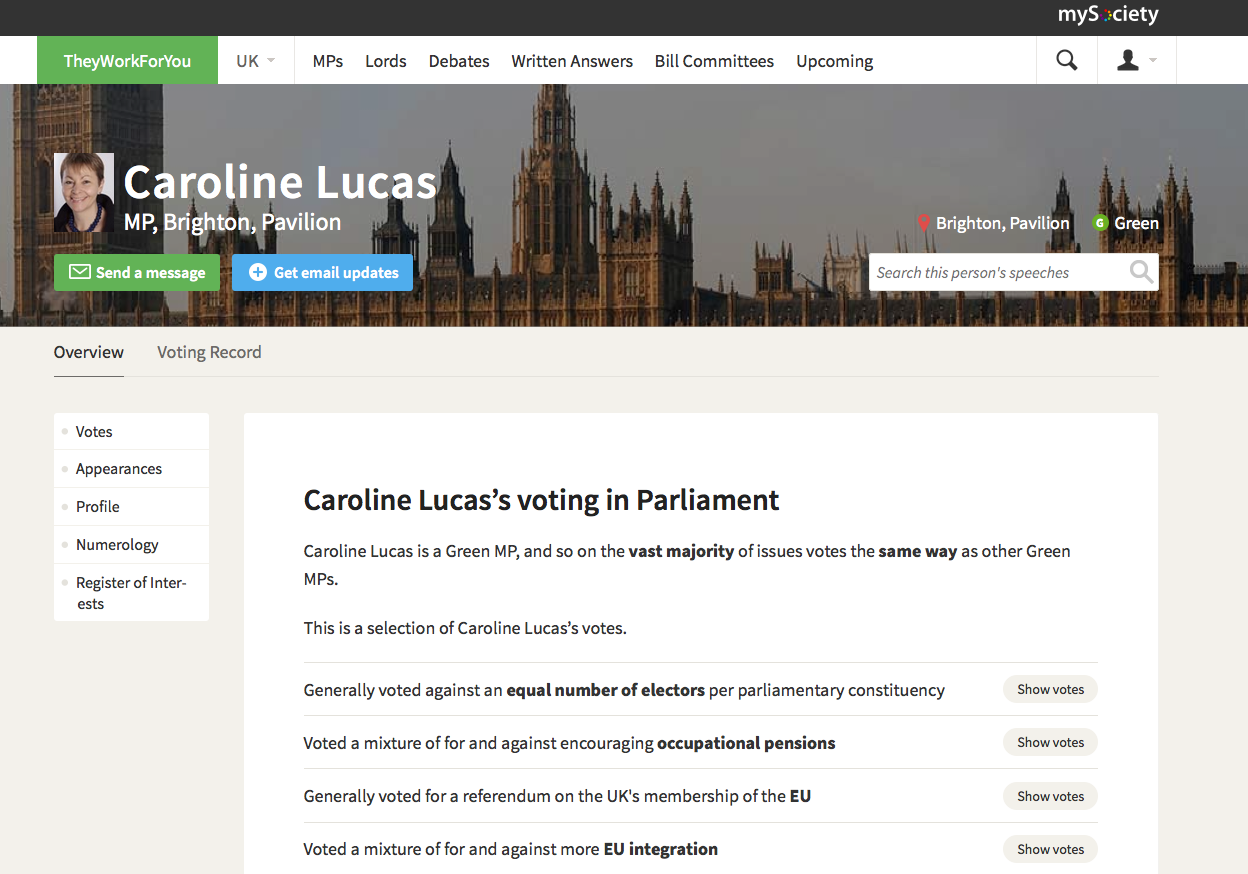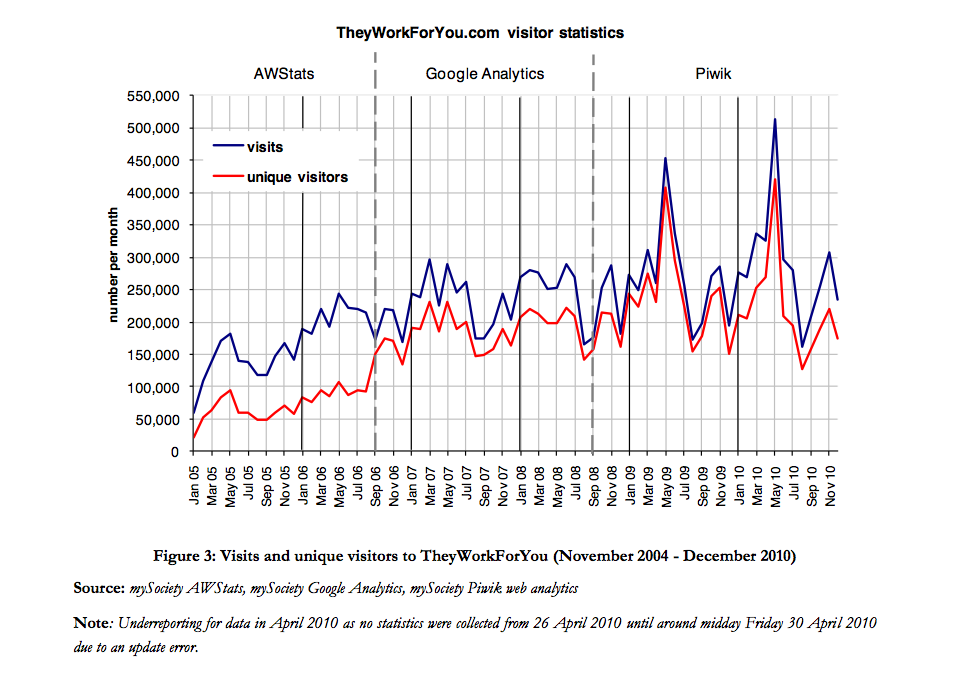The Global Impact of Open Data
United Kingdom's TheyWorkForYou
Taking the Long View
by Becky Hogge
Reference
1 Although in the case of postcode information (for Northern Ireland) provided by the Office for National Statistics, this data does not conform to the open definition, as it is made available for non-commercial use only.
2 TheyWorkForYou.com. (n.d.). About TheyWorkForYou. Retrieved September 30, 2015, from TheyWorkForYou.com: http://www.theyworkforyou.com/about/
3 mySociety. (n.d.). Homepage. Retrieved September 30, 2015, from mySociety: https://www.mysociety.org
4 Hogge, B. (2011, May). Open Data Study: New Technologies. Retrieved from Transparency and Accountability Initiative: http://transparencyinitiative.theideabureau.netdna-cdn.com/wp-content/uploads/2011/05/open_data_study_final1.pdf
5 Today, the official Parliament website is published under an Open Parliamentary Licence, which encourages re-use. In 2014, the development team behind the official Parliament website began releasing Parliamentary proceedings as open data.
6 Email-based interview, Matthew Somerville, Lead Developer, TheyWorkForYou, mySociety.
7 Email-based interview, Matthew Somerville, Lead Developer, TheyWorkForYou, mySociety.
8 Nixon, M. (2014, February 20). Open Data day resources. Retrieved from mySociety: https://www.mysociety.org/2014/02/20/open-data-day-resources/
9 Hadi, Z. (2014, May 2). Welcome to data.parliament – The Blog . Retrieved from data.parliament.uk: http://blog.data.parliament.uk/2014/05/hello-world-2/
10 Tom Steinberg founded mySociety in 2003 and acted as its CEO until August 2015. He was interviewed for this report in June 2015.
11 Interview, Tom Steinberg, Director of mySociety 2004-2015.
12 Email-based interview, Matthew Somerville, Lead Developer, TheyWorkForYou, mySociety.
13 BBC News. (2013, May 16). Three quarters of people ‘cannot name their local MP’. Retrieved from BBC News: http://www.bbc.co.uk/news/uk-politics-22555659
14 Most postcodes in the UK match precisely to constituency boundaries, meaning the OS CodePoint Open product is generally sufficient to serve TheyWorkForYou.com’s users. But there are exceptions. A 2013 Twitter conversation between Matthew Somerville and a TheyWorkForYou.com user reveals one occasion where the data did not match: Although inhabitants of the user’s road all shared a postcode, those living in odd-numbered houses were represented by one MP, and those living in even-numbered houses by another (mySociety 2013) (Matthew Somerville tweets as @dracos). Access to the Royal Mail’s Postcode Address File (see page 12) would allow TheyWorkForYou.com to provide all its users with accurate information about who represents them in the UK Parliament.
15 Escher, T. (2011, May). Analysis of users and usage for UK Citizens’ Online Deomcracy. Retrieved from https://www.mysociety.org/files/2011/06/TheyWorkForYou_research_report-2011-Tobias-Escher1.pdf
16 Interview, Tom Steinberg, Director of mySociety 2004-2015.
17 Hurst, G. (2006, February 27). The MPs who can’t stop talking. Retrieved from Times Online: http://web.archive.org/web/20070216112003/http://www.timesonline.co.uk/tol/news/politics/article735429.ece
18 Prentice, G. (2008, October 23). HC Deb, 23 October 2008, c151WH. Retrieved from TheyWorkForYou.com: http://www.theyworkforyou.com/whall/?id=2008-10-23b.139.0#g151.0
19 The Economist. (2012, October 27). Unleashed: Why backbench MPs are becoming so much harder to control. Retrieved from The Economist: http://www.economist.com/news/britain/21565220-why-backbench-mps-are-becoming-so-much-harder-control-unleashed
20 TheyWorkForYou.com. (n.d.). Frequently Asked Questions. Retrieved September 30, 2015, from TheyWorkForYou.com: http://www.theyworkforyou.com/help/
21 Private communication, Myf Nixon, mySociety marketing and communications manager
22 Escher, T. (2011, May). Analysis of users and usage for UK Citizens’ Online Deomcracy. Retrieved from https://www.mysociety.org/files/2011/06/TheyWorkForYou_research_report-2011-Tobias-Escher1.pdf
23 Email-based interview, Matthew Somerville, Lead Developer, TheyWorkForYou, mySociety.
24 Email-based interview, Matthew Somerville, Lead Developer, TheyWorkForYou, mySociety.
25 Prime Minister’s Office. (2010, May 29). PM’s podcast on transparency. Retrieved from gov.uk: https://www.gov.uk/government/news/pms-podcast-on-transparency





